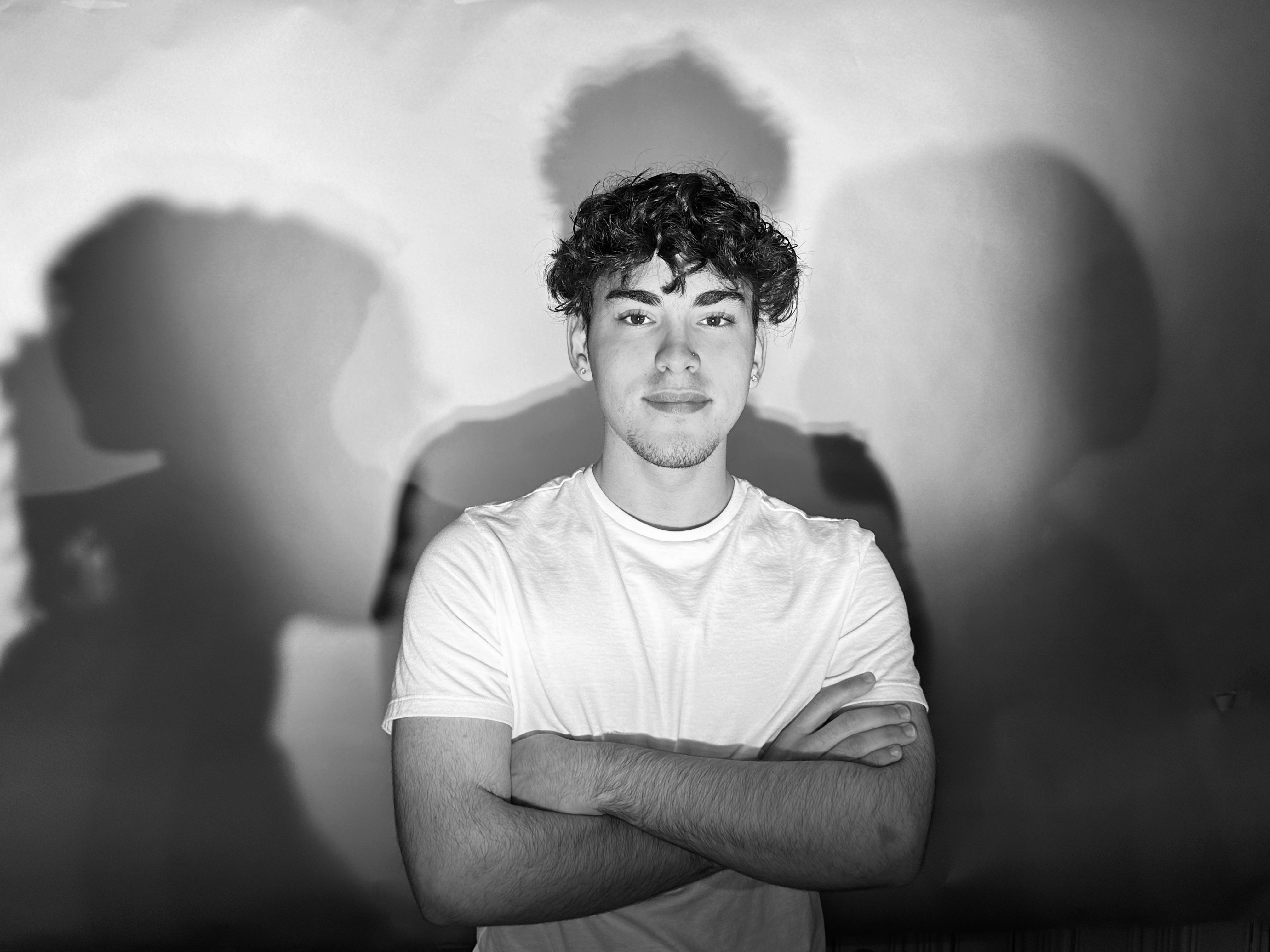We Are America
Defining Me
By Sebastian

Lowell High School, Lowell, Massachusetts
I was in the 8th grade when one of my old friends posted a tik tok of her sibling giving opinions of her best friend list on Snapchat. There I read that my Snapchat contact name was “gay best friend.” When I saw this, I felt betrayed. This friend had outed me on social media. My friendships made assumptions about me, assumed I was gay, and stereotyped me into being the funny “gay best friend” before I was able to come out myself. I was upset but decided to keep my feelings to myself and not feel more like a burden to others. This was the first major experience of my struggles with my identity that others asserted onto me before being able to come out myself.
Experiences like this one did not stop, but you could say they became more subtle. The exhausting, draining days of putting up a front face continued throughout my freshman year of high school. That was until I was triggered by an experience that marked me emotionally. I had fallen apart with my childhood best friend, simply because their partner did not feel comfortable with our friendship. As I felt betrayed it led to me to have my guard up and ghost. I felt like something was wrong with me, as a person. It became very clear to me that I could not depend on others to confirm and or validate my feelings as their friend. I was solely a stereotypical “character type”: Gay. Best friend. I started to believe these ideas myself.
In addition, somewhere in between middle school and high school, I became self-aware of how I may have been “too” for a specific friend group. Too “White” for my Latino/Hispanic friends, but too “Latino” for my other friends. I remember a situation with a group of friends, I got the chance to choose the next song we played, and as I did they commented on my music choice and labeled it as “White.” My personality was being simplified and stereotyped. As more experiences like those kept happening, I felt inferior to those around me, leading me to socially withdraw for a period of time. I just wanted to be me, but it was apparent that that was not an option. The false narratives of others limited me and put me in a box. I tried being more “Latino” but it did not come naturally to me.
My sophomore year was a huge turning point for me. I had ear surgery two days before my April vacation. As I buckled down and plugged away with school work to have a full relaxed recovery and break, I was also preparing mentally on how to heal both physically and mentally. Being physically challenged to heal from surgery also made me heal mentally to be able to be at true peace with how others made me feel. While the recovery days were not easy I began journaling, meditating, and reaching out to those who truly appreciated me for simply being me. I picked up hobbies that I had neglected. I began playing the flute more as a mechanism, I started being active and began socializing again.
As much love as I held for the people that hurt me, they no longer served a positive purpose in my life. Gaining control of my life and becoming more open-minded about how my identity does not have to be strictly based on any specific single identity of mine.
I’m taking back what people stripped away from me. I am now able to narrate my own story. When these situations arise I am able to react in ways that protect my energy and well-being. I was recently talking to someone and suddenly their comments towards my race were very negative and stereotypical. This really triggered my past experiences. Instead of shutting down, I spoke up for myself. I felt great pride that I was able to overcome the terrible coping mechanisms I picked up earlier in my life. It is much easier to just be me, in all my identities.
© Sebastian. All rights reserved. If you are interested in quoting this story, contact the national team and we can put you in touch with the author’s teacher.